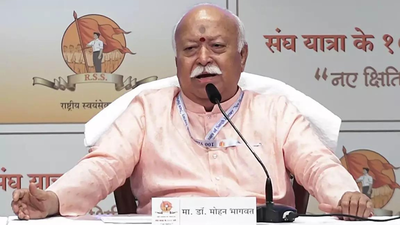Explained: Inside Novo Nordisk’s $9 Billion bid to outmuscle Pfizer |

Novo Nordisk, the Danish drugmaker behind the global weight-loss sensations Ozempic and Wegovy, has launched an unsolicited 9 billion dollar bid to buy obesity-drug developer Metsera. The move has triggered a corporate showdown with Pfizer, which only weeks earlier announced its own 7.3 billion dollar agreement to acquire Metsera. What began as a quiet negotiation between biotech companies has turned into one of the most dramatic takeover battles in the pharmaceutical world this year.
The Big Picture
At the heart of this contest is the rapidly growing weight-loss drug market. The popularity of injectable treatments like Ozempic, Wegovy, and Eli Lilly’s Mounjaro has created a new pharmaceutical gold rush. These drugs, known as GLP-1 agonists, were originally developed to treat diabetes but have since become the world’s most sought-after prescriptions for obesity. The market is now worth tens of billions of dollars and is expected to exceed 100 billion by the end of the decade.Novo Nordisk and Pfizer are both determined to secure their positions in this lucrative space. Novo already dominates the market but faces pressure from rising competition and slowing growth in some segments. Pfizer, which had once been a major player in obesity research, wants back in after its own experimental weight-loss pill failed earlier this year. Acquiring Metsera would give either company a significant edge in developing the next generation of treatments.
Driving the News
Novo Nordisk’s new bid offers Metsera 56.50 dollars per share in cash, plus another 21.25 dollars per share if certain performance milestones are achieved. Metsera’s board has described the offer as superior to Pfizer’s, setting off a tense four-day countdown for Pfizer to respond. Under the terms of its existing deal, Metsera can terminate its agreement with Pfizer if it determines that Novo’s offer remains better.Pfizer has already criticised Novo’s move as reckless and legally questionable. The company argues that the new proposal cannot be considered a valid competing bid and insists that its original offer provides certainty and immediate value for Metsera’s shareholders. Novo Nordisk, however, maintains that it has full confidence the deal can pass regulatory scrutiny and that it has structured the payment to ensure a fair outcome for investors.
Why It Matters
The battle over Metsera is not just about one biotech company. It reflects the broader race to control the future of obesity treatment. While current injectable drugs have transformed the industry, the next breakthrough is expected to come from oral versions that are easier for patients to use. Metsera is working on both a once-monthly injection and a pill-based treatment, making it one of the most attractive targets in the sector.For Novo Nordisk, winning Metsera would strengthen its already powerful pipeline of obesity therapies. It would also help the company maintain its lead over Eli Lilly, which is preparing to launch its own oral weight-loss pill. For Pfizer, losing Metsera would mean missing its best opportunity to re-enter the obesity market after abandoning its earlier efforts. The outcome could decide which of these pharmaceutical giants dominates the next phase of obesity medicine.The stakes are also high for investors. Metsera’s stock has surged more than 20 percent since Novo’s offer was announced, reflecting optimism about a potential bidding war. Novo’s shares, by contrast, fell in Copenhagen as investors weighed the cost and risks of such an aggressive move.
The Backstory
Metsera has been a target of acquisition interest for months. Before Pfizer and Novo entered the scene, Bristol Myers Squibb had held exclusive talks to buy the company through a mix of cash and stock. That deal collapsed due to internal issues at Bristol Myers, leaving the field open for others. Novo Nordisk made an initial private offer but Metsera rejected it, citing regulatory concerns and the risk of delays. The company eventually chose Pfizer’s 7.3 billion dollar proposal, which seemed more certain at the time.Novo Nordisk’s decision to return with an unsolicited public bid marks a shift in strategy under its new chief executive, Mike Doustdar. He has been reshaping the company’s leadership team and expanding its research portfolio after losing market share to rivals. Novo recently announced a major overhaul of its board after its controlling shareholder pushed for faster innovation in the obesity segment. The Metsera bid is part of that broader effort to reassert the company’s dominance.Pfizer, meanwhile, is trying to recover from setbacks. It had high hopes for its own experimental obesity pill but was forced to abandon it due to concerns about potential liver toxicity. The company’s chief executive, Albert Bourla, is personally involved in the attempt to secure Metsera as Pfizer’s path back into the field. For Pfizer, success in this deal could redefine its long-term growth after a difficult few years of declining vaccine sales and weaker performance in other areas.
The Strategy Behind the Bid
Novo Nordisk’s offer is structured in an unusual way. Instead of paying Metsera’s shareholders directly, it would pay the company itself, which would then issue a special dividend to investors worth 56.50 dollars per share. Additional payments would depend on regulatory approvals and developmental milestones. Analysts view this as a clever tactic that could give Novo more control over the process and reduce the chance of delays caused by shareholder disputes.By positioning the offer as a direct corporate investment rather than a pure acquisition, Novo may also be hoping to ease antitrust scrutiny. Regulators in the United States and Europe have been closely watching consolidation in the pharmaceutical sector, particularly among firms that already dominate their categories. Novo’s statement that it believes approval is achievable suggests it has already considered these potential obstacles.
The Bigger Picture
The fierce competition for Metsera is a sign of how rapidly the pharmaceutical landscape is changing. Obesity is now recognised not just as a lifestyle issue but as a chronic medical condition requiring long-term treatment. This shift has created one of the fastest-growing markets in medicine. For patients, the new drugs have been life-changing, helping millions lose weight and reduce related health risks such as diabetes and heart disease.For companies like Novo Nordisk and Pfizer, the financial rewards are enormous. But so are the challenges. Producing enough supply to meet global demand, addressing safety concerns, and maintaining affordability will all shape how this industry evolves. Both firms are racing not only against each other but against public expectations that these treatments will become widely accessible.
What Happens Next
Metsera’s board must now decide whether Pfizer can match Novo’s higher bid or whether it will risk breaking its existing agreement. If Pfizer chooses to fight, the dispute could end up in court. If Novo succeeds, it will gain valuable intellectual property that could keep it ahead in the obesity drug race for years. Either way, the outcome will reshape one of the most competitive corners of modern healthcare.The battle for Metsera is ultimately a story about ambition, timing, and the future of medicine. As pharmaceutical giants jostle for control of a single biotech company, the world is witnessing the early stages of a new era in weight-loss treatment, one driven as much by boardroom manoeuvres as by scientific innovation.






